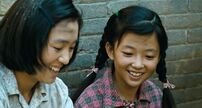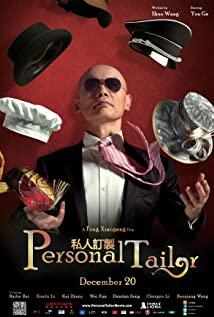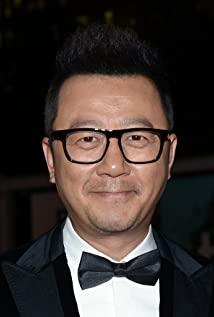The movie "Alive" is hailed as a living Chinese contemporary unofficial history, and it truly lives up to its name.
This is a quiet film, without much crying, grief, and exhaustion, as if it was just a commentary of the protagonist Fugui along the way.
The title of the film is "Alive", but throughout the film are the deaths one after another. The protagonist Fugui lost his father in the Republic of China, his mother died in the civil war, his son was lost in the "Great Leap Forward", and he lost his son in the "Cultural Revolution". During the Great Revolution", his daughter died. Every death seems to be an accident, but it is inevitable in line with the development of history. The era of turbulence and inhibition is the ruthless plunder of the people living at the bottom, making them and their families impoverished, from form to inner realization.
As a bystander, watching him step on the ice floes with a mirage-like hope all the time. After the uncontrollable appearance burst, relying on the long patience of their own instincts, they continued to survive in a state of suffocation. Life is like a piece of sea, taking all the tragic incidents.
This is the protagonist of this film, and also the ordinary Chinese people from the 1950s and 1960s to today, a real, paralyzed life state. By this definition, each of us becomes a masochist.
The audience is not only a bystander, but also a member of the story. Everyone's self is not only a scroll unrolled by history, but also a product of being squeezed by history. Reality offers no choice for how to live, and every step forward becomes a necessity.
Some people say that this is Zhang Yimou's most successful film. The film's plain and simple narrative is consistent with the plot, and the scene is always gray, just like that absurd era and ignorant society. Fugui, played by Ge You, maintains a chaotic expression and movement, vividly narrating the natural and sad patience of the little people of that era. After being forced to face various losses, he continues to calm down. Going on, it seems that you have experienced all kinds of true meanings of life, but in the end, you may return to nothing, come to this world naked, and leave naked.
In terms of plot, Zhang Yimou has done a lot of processing on the basis of the original work, which is quite successful. Some new plots are inserted, for example, there is no role of Professor Wang in the process of Fengxia's death. However, the introduction of the role of Professor Wang will reveal the secret behind Fengxia's death more bluntly. After experiencing the visual and psychological impact, the audience saw the ruthless destruction of intellectuals in that era.
Another major change is the change in Fugui's way of making a living. From the novel, Fugui borrowed two acres of land from Long Er to live, and became a wandering artist who borrowed a shadow play from Long Er. The shadow play runs through the whole film from beginning to end, just moving the rural background of the novel to the city, opening up the perspective, which is conducive to the expression of the film language, and achieves a more common and universal effect. From my understanding, the image of "shadow play" can also have a meaning that life is like a play, and the joys and sorrows are empty.
The movie changes Youqing's cause of death from the original death due to excessive blood transfusion for the county magistrate's wife to being dragged to work at school due to fatigue and being hit by Chunsheng to death. Uncover the bloody scene of the Shroud of Youqing, fully visualizing the tragic nature of the characters. Although not as politically sharp as the plot of the original book, the school forced students to put aside their studies and devote themselves to national steelmaking, projecting on another level the absurdity of the top-down thinking mode and rough behavior in the context of the Great Leap Forward. The pseudo-scientific line of socialism and the wanton rampage of idealism, utilitarianism and imperativeism. When a staff member came to Fugui's home, Youqing, opened the box where Fugui's shadow puppets were placed, and pointed out that the nails on the box and the iron wire on the shadow puppets were also metal, and there was some kind of secret connection. In contrast, the plot after the change avoids absoluteization and is more meaningful.
There are also major changes at the end. The end of the original work is this: Fengxia died in childbirth, her husband was crushed to death by a slate while working, and Erxi's son was raised by Fugui, and later died after eating beans. All Fugui's family left him, only an old cow accompanied him, he said, "Human, just want to live."
This is typical black humor, tragic and perverted, in the depths of suffering, but not knowing what to do. Only by indulging in pain can all wounds heal without medicine.
However, the ending of the movie is much milder. After Fengxia's death, her son is named Mantou, and Fugui and Jiazhen live with Erxi and Mantou. This kind of treatment keeps the tragedy within a range that is adequate and easy for people to bear, and makes the audience's perspective shift from pure tragedy to the relationship between life and history.
The phrase "live well" struck a nerve in me. This is the most basic will for everyone to live, but the standard of "living well" varies widely from person to person. As ordinary people at the bottom of life, their standards have been constantly lowered, and finally they completely succumbed to the world of numbness and misfortune.
This peaceful film was listed as one of China's top ten banned films, with an ideological forcible commentary on "discord". Today, this country has the courage to admit some of the mistakes it has made in the past, but why does it not have the courage to admit it completely? Since you have the courage to face the past, why cover up and not have the courage to face the present and correct the present?
Therefore, in the face of history and reality, what else can be said other than a sigh?
In the face of "living" full of pain, what can you say?
View more about To Live reviews











